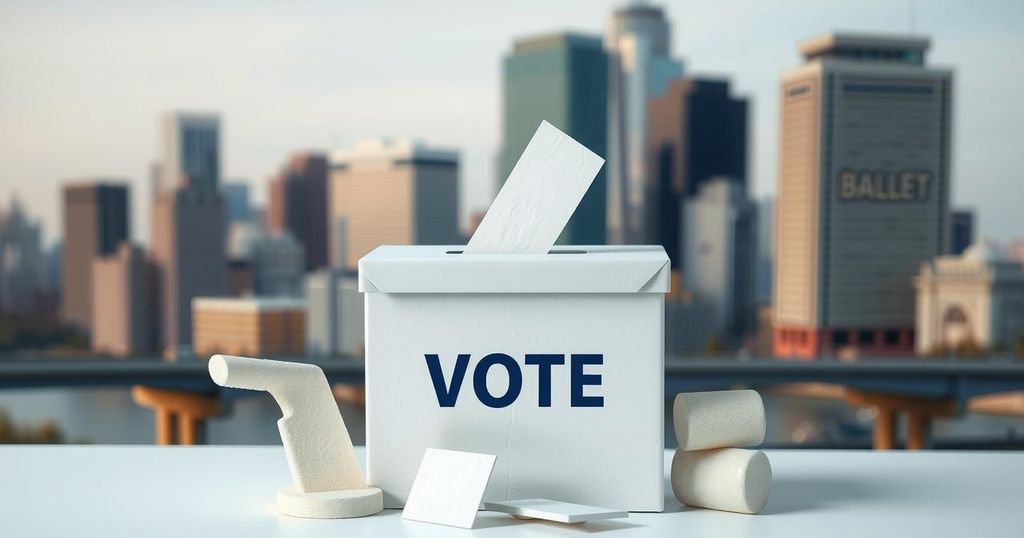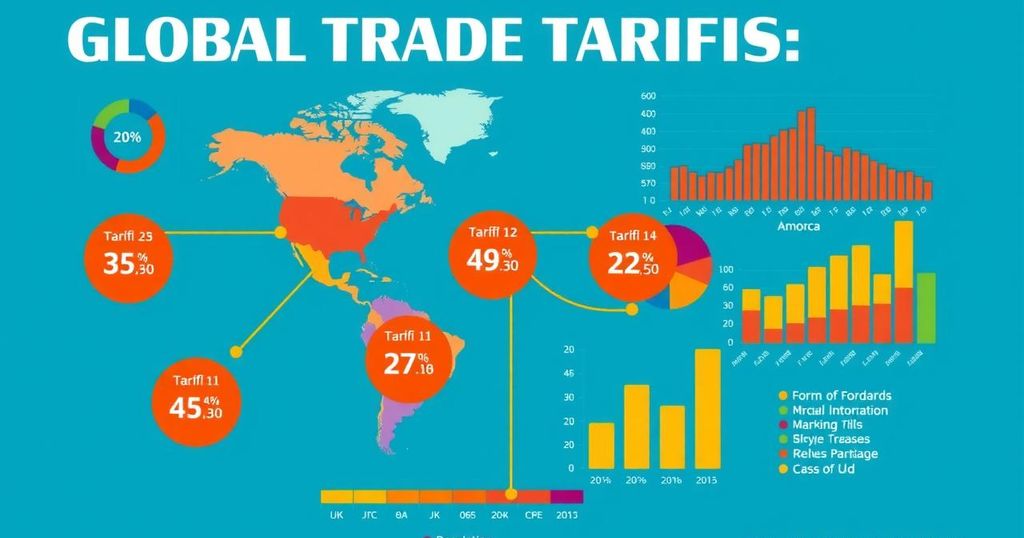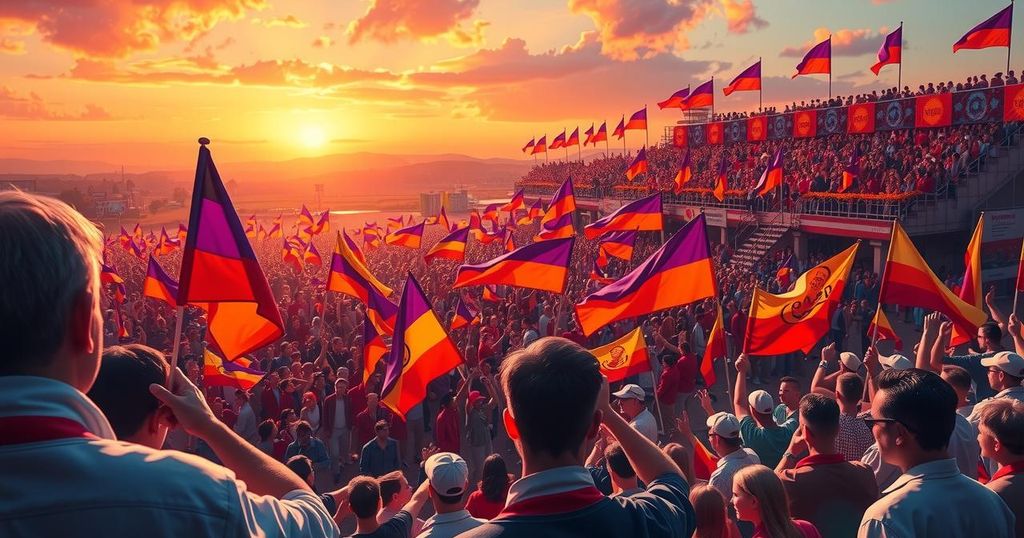Ecuador is poised for a crucial presidential election as President Daniel Noboa seeks a full term amidst rising crime and economic challenges. Noboa faces 15 challengers, notably Luisa Gonzalez. The election includes legislative positions. Polls reveal public concerns about crime and safety, prompting calls for strict security measures. The outcome will highlight the direction of Ecuadorian governance in the coming years.
Ecuador will hold a pivotal presidential election on Sunday, during which President Daniel Noboa seeks to secure a full four-year term. Noboa has faced mounting concerns regarding escalating crime rates and economic turbulence, compelling voters to reflect on his brief tenure since ascending to the presidency 18 months ago as the youngest ever elected. In this election, he will contend against 15 rival candidates, with Luisa Gonzalez emerging as his principal opponent.
Since taking office as a candidate focused on law and order, Noboa has implemented measures to bolster law enforcement, albeit sometimes at the cost of civil liberties. Despite these efforts, the nation continues to grapple with severe violence and organized crime, positioning the election as a referendum on his performance. This election also coincides with legislative races for all 151 seats in Ecuador’s National Assembly, further emphasizing the stakes at play.
The voting process involves a first round on February 9, wherein a candidate must secure over 50 percent of the vote or at least 40 percent with a 10-point lead over their nearest competitor. Should no candidate meet these criteria, a run-off election is scheduled for April 13 to determine the ultimate winner among the top two candidates. Noboa’s political journey follows the unprecedented invocation of the “muerte cruzada” by his predecessor, which not only ended the previous president’s term but also dissolved the legislature.
Noboa, who formerly served in the National Assembly, captured the presidency in 2023 amidst a tumultuous backdrop of political upheaval. Polls indicate that despite Noboa’s current leadership, he may struggle to avoid a runoff, with Luisa Gonzalez, representing the left-oriented Citizen Revolution party, remaining a formidable challenger. Historical voter intention trends suggest he must galvanize support to secure an uninterrupted term.
The race has brought back notable candidates, such as Jan Topic, a right-leaning businessman advocating for stringent crime policies, and Leonidas Iza, an Indigenous leader pushing for enhanced rights and opportunities for Indigenous peoples. The political climate is further complicated by past violence in the race, notably the assassination of anti-corruption candidate Fernando Villavicencio in 2023. His former running mate, Andrea Gonzalez, seeks to continue his fight against corruption by entering the race.
The elections also extend to the National Assembly, with Noboa’s ADN party currently leading in polls against Gonzalez’s RC party. The legislature’s expansion to 151 seats allows for significant shifts in party power dynamics. Aside from political aspirations, the pulse of public sentiment reveals escalating concerns over economic hardships and increasing living costs, although crime remains the paramount issue for voters across Ecuador.
Ecuador’s history as a relatively stable and safe country has been overshadowed by recent surges in violence due to rampant organized crime, notably fueled by drug trafficking. The pandemic exacerbated existing problems, leading to economic downturns that left many young people susceptible to criminal enticements. Accusations of state complicity in drug crimes further cloud public trust in government institutions and their approach to crime management.
The public’s insistence on stringent crime solutions, such as reforms endorsing military involvement in public security, reflects a prevailing sentiment for immediate action. However, criticisms regarding potential human rights abuses and systemic challenges underscore the necessity for comprehensive approaches beyond merely militaristic responses. Observers assert that solutions must address root socio-economic factors to diminish reliance on punitive measures in addressing security concerns.
Ecuador’s upcoming election is pivotal, as President Daniel Noboa seeks to solidify his governance amid significant public discontent tied to crime and economic issues. Noboa initially entered into power under a promise of enhancing law enforcement yet is challenged by increasing violence and a deteriorating economic situation. With a competitive field of candidates, including notable figures like Luisa Gonzalez, the election may serve both as a referendum on his performance and a platform for legislative changes, emphasizing the necessity for effective governance in addressing urgent societal issues.
As Ecuador approaches its presidential election, the outcome will significantly impact the country’s future, particularly concerning public safety and economic stability. President Noboa’s leadership has been under scrutiny, reflecting broader concerns regarding the efficacy of current policies in combating crime. Voter sentiment appears to favor stringent solutions; hence, the election’s results will be critical in shaping both legislative and executive strategies moving forward.
Original Source: www.aljazeera.com




